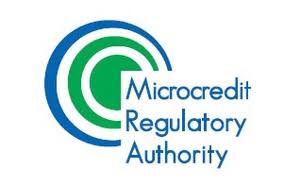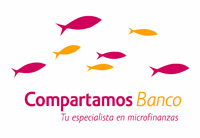Related Research Articles

Microcredit is the extension of very small loans (microloans) to impoverished borrowers who typically lack collateral, steady employment, and a verifiable credit history. It is designed to support entrepreneurship and alleviate poverty. Many recipients are illiterate, and therefore unable to complete paperwork required to get conventional loans. As of 2009 an estimated 74 million people held microloans that totaled nearly US$40 billion. Grameen Bank reports that repayment success rates are between 95 and 98 percent. The first economist who had invented the idea of micro loans was The Very Reverend Jonathan Swift in the 1720’s. Microcredit is part of microfinance, which provides a wider range of financial services, especially savings accounts, to the poor. Modern microcredit is generally considered to have originated with the Grameen Bank founded in Bangladesh in 1983 by their current Chief Adviser Muhammad Yunus. Many traditional banks subsequently introduced microcredit despite initial misgivings. The United Nations declared 2005 the International Year of Microcredit. As of 2012, microcredit is widely used in developing countries and is presented as having "enormous potential as a tool for poverty alleviation." Microcredit is a tool that can possibly be helpful to reduce feminization of poverty in developing countries.

Microfinance consists of financial services targeting individuals and small businesses who lack access to conventional banking and related services. Microfinance includes microcredit, the provision of small loans to poor clients; savings and checking accounts; microinsurance; and payment systems, among other services. Microfinance services are designed to reach excluded customers, usually poorer population segments, possibly socially marginalized, or geographically more isolated, and to help them become self-sufficient. ID Ghana is an example of a microfinance institution.
Omidyar Network is a self-styled "philanthropic investment firm," composed of a foundation and an impact investment firm. Established in 2004 by eBay founder Pierre Omidyar and his wife Pam, Omidyar Network has committed over US$1.5 billion to nonprofit organizations and for-profit companies across multiple investment areas. According to the OECD, Omidyar Network's financing for 2019 development increased by 10% to US$58.9 million.
Sam Dryden was a thought leader and advocate for food and nutrition security, with a particular focus on small-holder farmer led agricultural development in Africa and Asia. Lately Dryden was a Fellow at Imperial College, working on a project to promote digital technologies that can catalyse sustainable agricultural transformation across the food system in Africa.

Village banking is a microcredit and saving methodology whereby financial services are administered locally in a community bank rather than in a centralized commercial bank. Village banking has its roots in ancient cultures and was most recently adopted for use by micro-finance institutions (MFIs) as a way to control costs. Early village banking methods were innovated by Grameen Bank and then later developed by groups such as FINCA International founder John Hatch. Among US-based non-profit agencies there are at least 31 microfinance institutions (MFIs) that have collectively created over 800 village banking programs in at least 90 countries. And in many of these countries there are host-country MFIs—sometimes dozens—that are village banking practitioners as well. The latest developments globally can be seen in Southeast Asia, where digitization is pacing fast to reach rural areas with hybrid on- and offline solutions.

The Sustainable Sanitation Alliance (SuSanA) is a loose network of organizations who are "working along the same lines towards achieving sustainable sanitation". It began its work in 2007, one year before the United Nations International Year of Sanitation in 2008. The intention of creating SuSanA was to have a joint label for the planned activities for 2008 and to align the various organizations for further initiatives.
Vijay Mahajan is the chief executive officer (CEO) of the Rajiv Gandhi Foundation and the director of the Rajiv Gandhi Institute of Contemporary Studies.
Financial inclusion is the availability and equality of opportunities to access financial services. It refers to processes by which individuals and businesses can access appropriate, affordable, and timely financial products and services - which include banking, loan, equity, and insurance products. It provides paths to enhance inclusiveness in economic growth by enabling the unbanked population to access the means for savings, investment, and insurance towards improving household income and reducing income inequality

Microcredit Regulatory Authority (MRA) is the central body to monitor and supervise microfinance operations of non-governmental organizations of the Republic of Bangladesh. It was created by the Government of People's Republic of Bangladesh under the Microcredit Regulatory Authority Act. License from the Authority is mandatory to operate microfinance operation in Bangladesh as an NGO.
Innovations for Poverty Action (IPA) is an American non-profit research and policy organization founded in 2002 by economist Dean Karlan. Since its foundation, IPA has worked with over 400 leading academics to conduct over 900 evaluations in 52 countries. The organization also manages the Poverty Probability Index.
The International Association of Insurance Supervisors (IAIS) is a membership organization of insurance supervisors from more than 200 jurisdictions, constituting 97% of the world's insurance premiums. It is the international standards-setting body for the insurance sector. The IAIS was established in 1994 and operates as a verein, a type of non-profit organisation under Swiss Civil Law.

Compartamos Banco is a Mexican bank and the largest microfinance bank in Latin America, serving more than 2.5 million clients. The bank was founded in 1990 and is headquartered in Mexico City.

Microfinance Information Exchange, Inc. was a non-profit organization that provided market data and intelligence on financial service providers catering to low-income populations around the world. Founded by the Consultative Group to Assist the Poor (CGAP) and sponsored by the Citi Foundation, CGAP, the Mastercard Foundation, MetLife Foundation, Bill & Melinda Gates Foundation and others, MIX had offices in Washington DC, New York, Lima (Peru), Baku (Azerbaijan), Dakar (Senegal), and Hyderabad (India). MIX's mission was to provide data analytics to empower decision-makers - socially responsible investors, policy makers and financial services providers - to build an inclusive financial services ecosystem. Since its founding in 2002, MIX had built the digital information infrastructure needed to bring greater transparency to financial sectors serving low-income populations in emerging markets, including providing market data on over 3,000 financial services providers (FSPs). In 2016, MIX shifted its strategy to help improve the information flow in other segments of financial inclusion, like smallholder agricultural finance, fintech, digital financial services (DFS) and green energy finance. In May 2020, MIX became a unit of the Center for Financial Inclusion, a thinktank housed at Accion.

The Maya Declaration is a global initiative for responsible and sustainable financial inclusion issued by the Alliance for Financial Inclusion that aims to reduce poverty and ensure financial stability for the benefit of all. It is the first global and measurable set of financial inclusion commitments by developing and emerging economies.
The Global Policy Forum (GPF) is organized by the Alliance for Financial Inclusion, or AFI, as the keystone event for its membership and financial inclusion policymakers worldwide. Each year, it is co-hosted by a different member institution in a different region of the world. As of November 2023, AFI had 86 member institutions from over 80 countries, making the AFI GPF the most important and comprehensive forum for regulatory institutions with an interest in promoting financial inclusion policy. The AFI GPF is focused on developing and improving national financial inclusion strategies and policies and is used as a platform for senior financial regulators to exchange ideas as well as engage in peer-to-peer learning activities.

The Alliance for Financial Inclusion (AFI) is a policy leadership alliance owned and led by member central banks and financial regulatory in developing countries with the objective of advancing financial inclusion.

Cities Alliance is a global partnership fighting urban poverty and supporting cities to deliver sustainable development. To manage its activities, the Cities Alliance operates a multi-donor fund with UN Office for Project Services (UNOPS), as host and trustee. Different members provide direction, financing and advocacy. Cities Alliance aims to deliver solutions to urban poverty.
The Better Than Cash Alliance is a global partnership of 80 governments, companies, and International Organizations that accelerates the transition from cash to responsible digital payments to help achieve the Sustainable Development Goals (SDGs).

Elizabeth L. Littlefield is an American businesswoman and executive. She is the Senior Partner and co-founder of West Africa Blue, and Senior Advisor at Pollination, a climate change investment and advisory firm. She chairs the Board of M-KOPA solar and serves on the board of the World Wildlife Fund (US).

Kashf Foundation is a non-profit organization, founded by Roshaneh Zafar in 1996. Kashf is regarded as the first microfinance institution (MFI) of Pakistan that uses village banking methodology in microcredit to alleviate poverty by providing affordable financial and non-financial services to low income households - particularly for women, to build their capacity and enhance their economic role. With headquarters in Lahore, Punjab, Kashf have regional offices in five major cities and over 200 branches across Pakistan.
References
- ↑ "Consultative Group to Assist the Poor (CGAP)". Bundesministerium für wirtschaftliche Zusammenarbeit und Entwicklung (in German). Retrieved 2024-09-20.
- ↑ "Consultative Group to Assist the Poor (CGAP) | Devex". www.devex.com. Retrieved 2024-09-20.
- ↑ "Jason Lamb of Gates Foundation Named New Chair of CGAP's Executive Committee | GlobeNewswire by notified". kommunikasjon.ntb.no (in Norwegian). Retrieved 2024-09-20.
- ↑ CGAP (2019-05-24). "Jason Lamb of Gates Foundation Named New Chair of CGAP's Executive Committee". GlobeNewswire News Room (Press release). Retrieved 2024-09-20.
- ↑ "The Consultative Group to Assist the Poor" (PDF). Retrieved 2024-09-20.
- ↑ "CGAP Phase IV | Mid-Term Evaluation" (PDF).
- ↑ "Advancing financial access for the world's poor annual report 2008 (Inglês)". www.worldbank.org. Retrieved 2024-09-20.
- 1 2 "Access to finance for the poor annual report 2010 (Inglês)". www.worldbank.org. Retrieved 2024-09-20.
- ↑ "About". Better Than Cash Alliance. Retrieved 2024-09-20.
- ↑ "Alliance for Financial Inclusion - About". Alliance for Financial Inclusion - About. 2019-07-08. Retrieved 2024-09-20.
- ↑ "Alliance for Financial Inclusion - About". Alliance for Financial Inclusion - About. 2019-07-08. Retrieved 2024-09-20.
- ↑ "Programm zur Unterstützung der Partnerschaft Making Finance Work for Africa – MFW4A". www.giz.de (in German). Retrieved 2024-09-20.